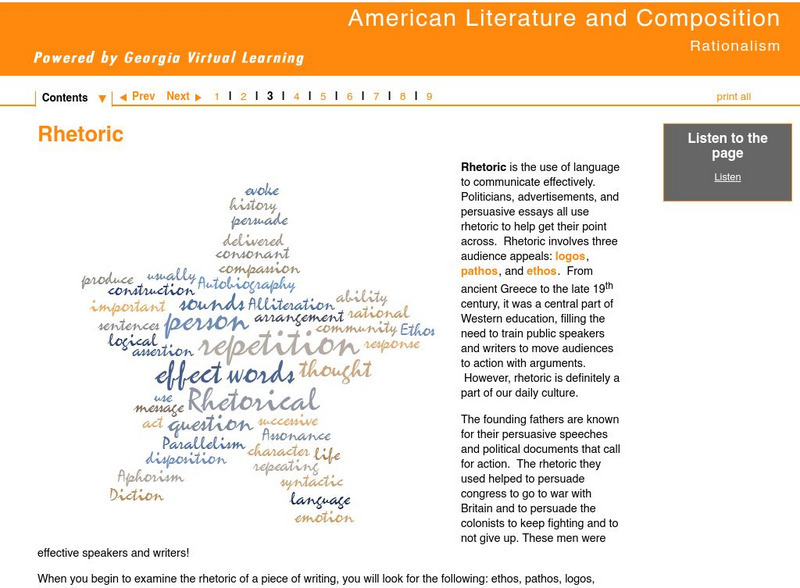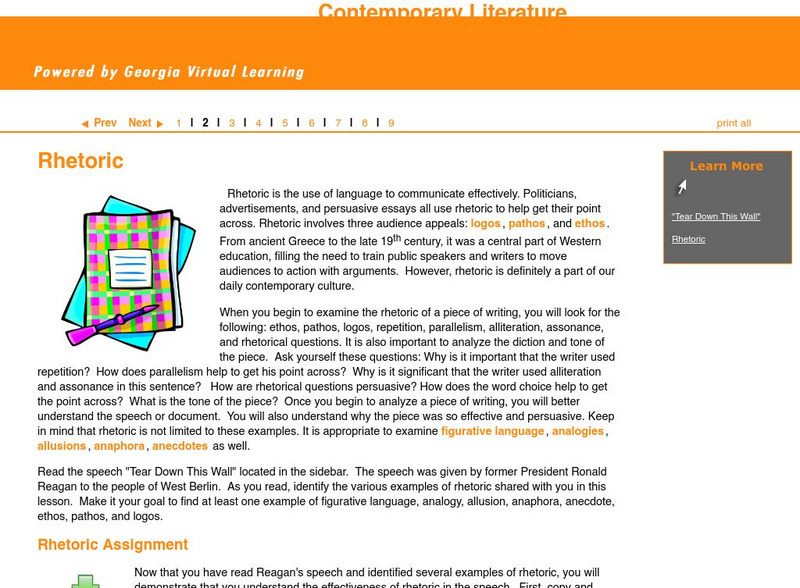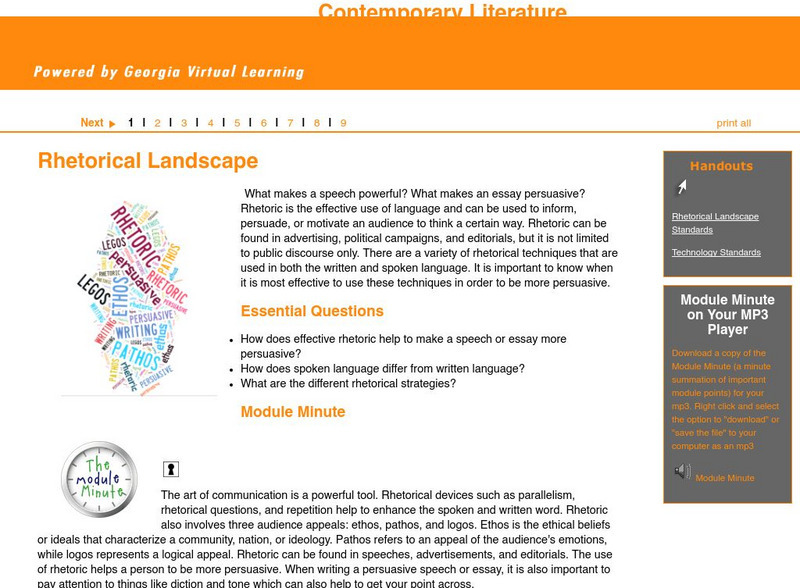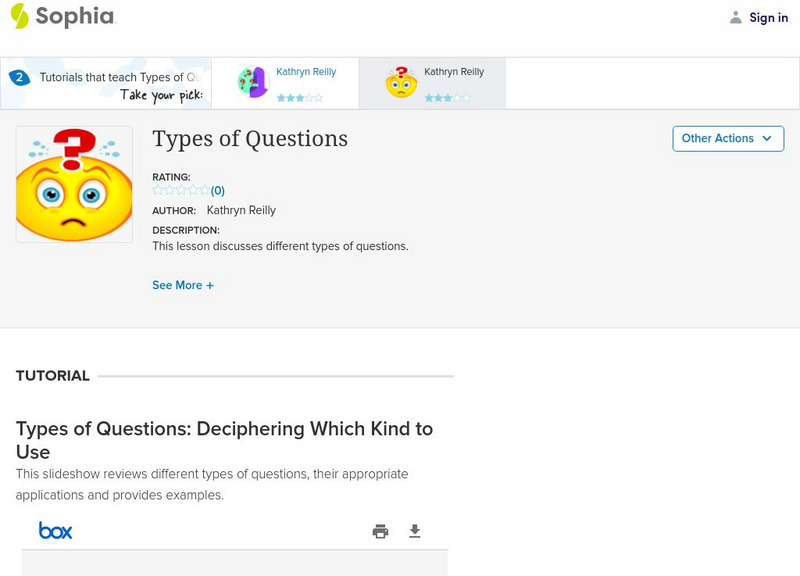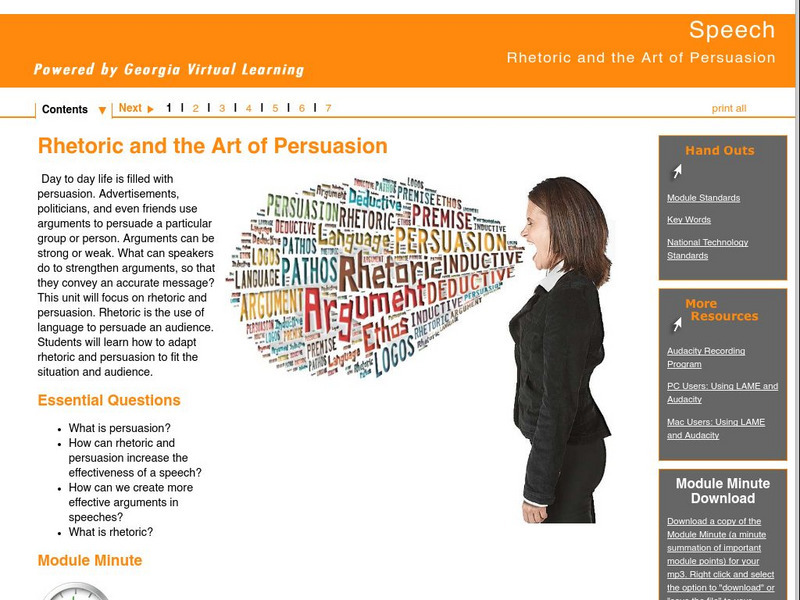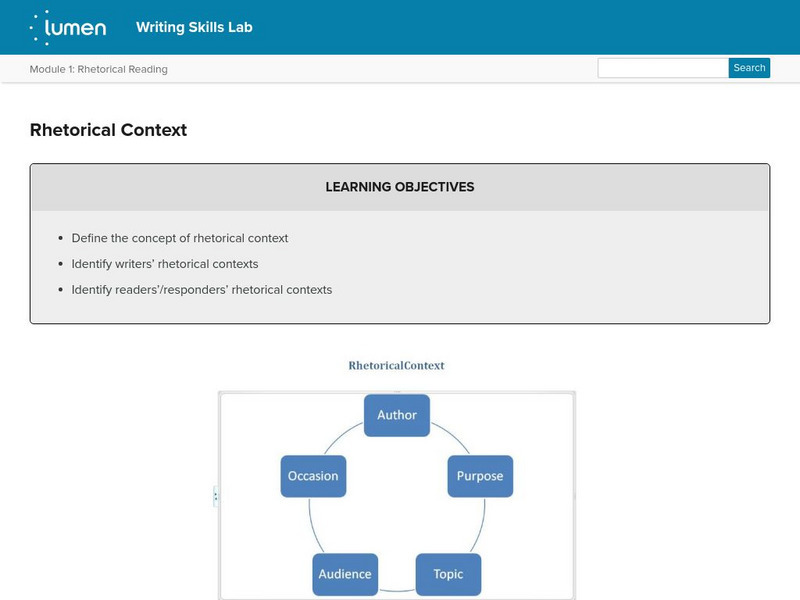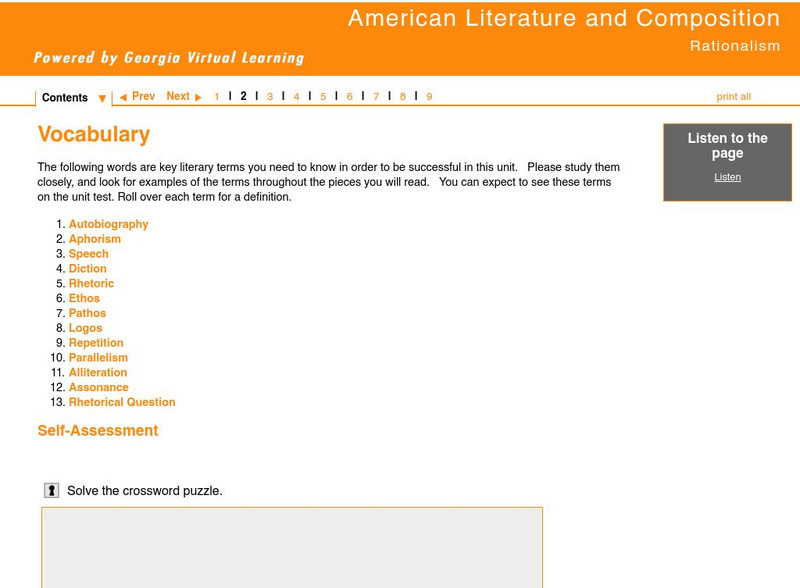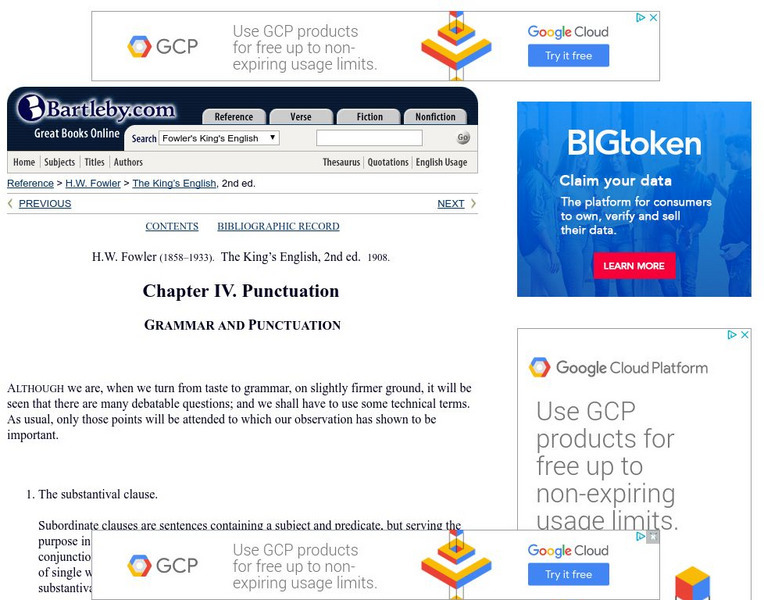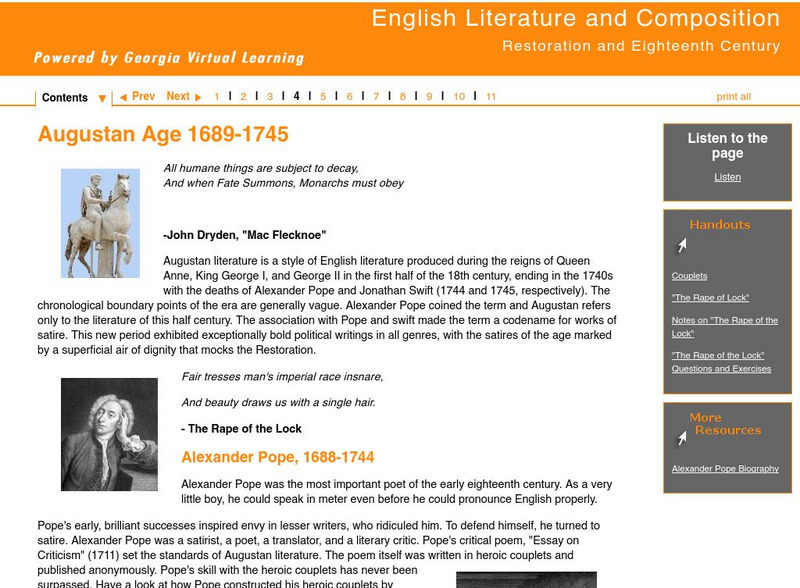Curated OER
That was Then, This is Now-House and Home
Eleventh graders discover the appreciation of the importance of visuals in exploring different aspects of society past and present. They collaborate on comparing and contrasting information. Students look at what life was like during the...
Curated OER
Reflections About Diversity
High schoolers discuss conflicts that arise from problems with diversity issues, and hypothesize what is needed to bring about successful resolutions to these problems. They write a newspaper editorial about how conflicts can be...
Curated OER
Take a Ride on the Underground Railroad
High schoolers explore the issues of American slavery, the abolitionist movements, and the pursuit of freedom that is found in art, literature, and music from that period in American history. Students determine the major personalities...
Curated OER
Anti-social Behavior - A Topical Lesson From Learn.co.uk
Students discuss issues of crime, punishment, respect and responsibility,
and explore arguments about causes of crime and possible solutions, and write persuasive essays sharing their views.
Other
Seymour Community School District: 10 Rhetorical Devices [Pdf]
A slideshow discussing ten rhetorical devices, with links to examples, in-depth information, and a video. Covers logos, ethos, pathos, analogy, metaphor, irony, personification, rhetorical question, tricolon, and maxims. Presents a...
Sophia Learning
Sophia: The Impact of Rhetorical Devices
This slideshow focuses on the impact of rhetorical devices and how they impact text. It explains eight common rhetorical devices: anaphora, asyndeton, chiasmus, direct address, hyperbaton, parallelism, polysyndeton, and rhetorical...
Texas Education Agency
Texas Gateway: Rhetorical Devices and Transitions (English I Writing)
[Accessible by TX Educators. Free Registration/Login Required] In this lesson, you will learn about Sam's three tricks: parallel structure, the rhetorical question, and transitional words and phrases.
Georgia Department of Education
Ga Virtual Learning: American Literature and Composition: Rationalism: Rhetoric
This lesson focuses on Rhetoric and the literary techniques used in American Revolutionary speeches and writings. Students are asked to determine the rhetorical devices used in quotes from "The Crisis No 1" by Thomas Paine and Patrick...
Georgia Department of Education
Ga Virtual Learning: Contemporary Literature: Rhetorical Landscape: Rhetoric
This lesson focuses on rhetoric; it defines it, discusses rhetorical devices, and audience appeals. It includes a student assignment to read "Tear Down This Wall" a speech by Ronald Reagan and then use the comment feature in Microsoft...
Georgia Department of Education
Ga Virtual Learning: Contemporary Literature: Rhetorical Landscape
This is an introduction to a unit on the use of rhetoric in speaking or writing to persuade an audience to the desired way of thinking or action. If focuses on rhetorical techniques and the three audience appeals: ethos, pathos, and logos.
Sophia Learning
Sophia: Types of Questions
This slideshow lesson focuses on types of questions; it provides background, purpose, and a list of the seven types of questions: rhetorical, direct or interrogative, indirect, open-ended, closed, and embedded. It provides background and...
Khan Academy
Khan Academy: The Sat Reading Test: Rhetoric
Details about Rhetoric on the SAT Reading Test. One definition of the word rhetoric is "the study of writing or speaking." Rhetoric questions on the Reading Test assess how well you understand the choices that authors make as they...
Georgia Department of Education
Ga Virtual Learning: Speech: Rhetoric and the Art of Persuasion
This is a complete unit on rhetoric and persuasion including key words, what to expect, handouts, lessons, self-quizzes, audio and speaking assignments, and an in-depth final assessment using JFK's Inaugural Address with a grading...
Lumen Learning
Lumen: Rhetorical Reading: Rhetorical Context
This lesson focuses on rhetorical context including defining it, questions to ask to understand it, and how it can be useful to the reader and responder.
TED Talks
Ted: Ted Ed: How to Use Rhetoric to Get What You Want
How do you get what you want, using just your words? Aristotle set out to answer exactly that question over two thousand years ago with a treatise on rhetoric. Camille A. Langston describes the fundamentals of deliberative rhetoric and...
Sophia Learning
Sophia: Incorporating Questions in Writing
This lesson goes over how to incorporate questions in a composition.
American Rhetoric
American Rhetoric: Abraham Lincoln: "Cooper Union Address"
This is the text of Abraham Lincoln's "Cooper Union Address" which was delivered on February 27, 1860, in New York, NY. He addresses the question of federal control of slavery in the states.
Lumen Learning
Lumen: Rhetorical Reading: Putting It Together: Rhetorical Reading
This is a summary of the previous lessons having to do with rhetorical reading including rhetorical context, previewing text, actively reading, using context clues, and reading voraciously.
Sophia Learning
Sophia: Hypophora
A six-slide presentation introducing hypophora and explaining its use as a rhetorical device.
Georgia Department of Education
Ga Virtual Learning: American Literature and Comp: Rationalism: Vocabulary
This lesson focuses on the literary terms needed for the unit on Rationalism. I provides a list of terms and a crossword puzzle using them.
Bartleby
Bartleby.com: The King's English: Exclamation Mark Rules for Use
This site contains information on using the exclamation mark when there is no exclamation; confusion between question and exclamation; and internal questions and exclamation marks.
American Rhetoric
American Rhetoric: Ashton Carter: Worldwide Troop Talk: Defense Media Activity
This is the text, audio, and video [1:11:18] of the Defense Media Activity's "Worldwide Troop Talk" with Secretary of Defense Ashton Carter on September 1, 2015, in Fort Mead, Maryland.
National Endowment for the Humanities
Neh: Edsit Ement: Shakespeare's Othello and the Power of Language
A lesson plan focusing on the power of Iago's language, as shown through his crafty deception of Othello, "Shakespeare's Othello and the Power of Language" provides several links to information on Shakespeare, Othello, and rhetoric.
Georgia Department of Education
Ga Virtual Learning: Restoration and Eighteenth Century: Augustan Age 1689 1745
This lesson focuses on the Augustan Age and Alexander Pope, who coined the term. It featues links to a Pope biography, "The Rape of the Lock," text, notes and questions, and "The Rhetorical Organization of the Neoclassical Couplet."




![Seymour Community School District: 10 Rhetorical Devices [Pdf] PPT Seymour Community School District: 10 Rhetorical Devices [Pdf] PPT](https://static.lp.lexp.cloud/images/attachment_defaults/resource/large/FPO-knovation.png)


